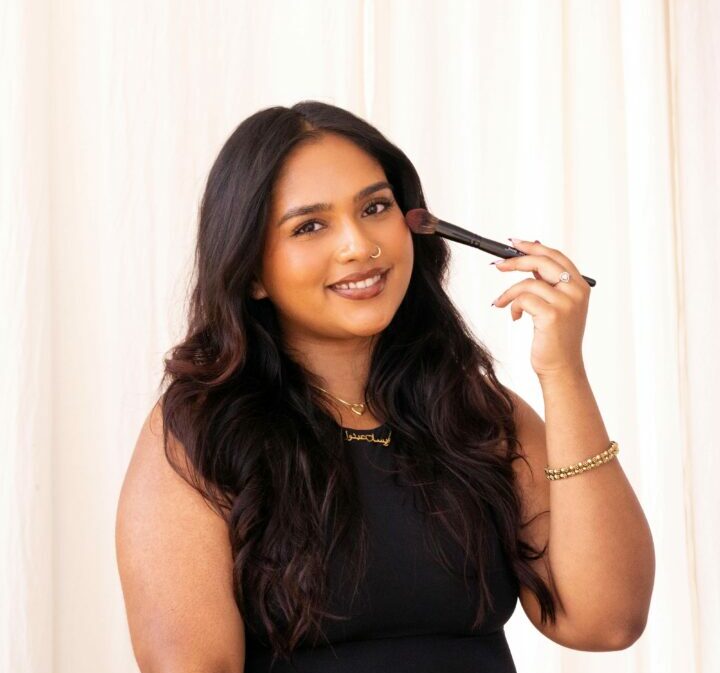Alright – so today we’ve got the honor of introducing you to Joshua Gillespie. We think you’ll enjoy our conversation, we’ve shared it below.
Joshua , so good to have you with us today. We’ve always been impressed with folks who have a very clear sense of purpose and so maybe we can jump right in and talk about how you found your purpose?
As “Brotha Ase,” I found my purpose through connecting deeply with the African Oral Traditions, reimagining the role of a griot, or cultural storyteller, for a new generation. Growing up, I was captivated by stories and rhythms told by my Grandparents grandmaster storyteller’s Vusumuzi and Nothando Zulu, but it was the realization that these traditions carry the history, values, and collective spirit of African/ African American cultures that shifted my path. I became aware of the powerful role griots play as custodians of communal memory, identity, and empowerment—a role that went beyond just storytelling to include the preservation and activation of cultural pride and resilience especially in my city of Minneapolis.
Embracing the griot’s legacy meant confronting cultural barriers that often distance younger generations from these traditions. Most storyteller’s start begin their Griot journeys in their 40’s whereas I started in my 20’s. In today’s fast-paced, digitally driven world, many see African Oral Traditions as distant or even outdated. As a “new school griot,” I took it as my mission to bridge this divide, finding innovative ways to make these ancient narratives accessible, relevant, and engaging. By combining spoken word, music, Canvas and performance art, I discovered ways to breathe new life into these traditions, ensuring that each story connects not only with the past but also with the present-day realities of our community.
Being a new school griot also means guiding others to see themselves in these traditions, to find empowerment and voice in their heritage, and to carry forward the wisdom embedded in every story, rhythm, and proverb. It’s not just about preserving history—it’s about creating a dynamic, living culture that resonates with each new generation, fueling pride, unity, and resilience in our community.


Let’s take a small detour – maybe you can share a bit about yourself before we dive back into some of the other questions we had for you?
My work as a new school griot is rooted in African Oral Traditions, using the power of spoken word, rhythm, and art to reconnect people with stories that are rich with history, identity, and ancestral pride. I’m committed to creating spaces for authentic cultural expression where people, especially youth, can explore who they are, feel the strength of their heritage, and understand the depth of their roots. I teach in High Schools, after school enrichment programs, community events, Festivals, and much more. I am also the Music and Art Director at Urban Ventures where I hope to continue cultivating space for underserved communities and voices.
What excites me most is the transformative power of these stories and the impact they have on our collective. Each one is alive, carrying generations of knowledge and resilience. I get to witness how these traditions empower people—how they stir something inside that’s often been dormant or overlooked. Watching someone hear their history reflected in a drum beat or recognize themselves in a story, feeling proud and inspired, is one of the most rewarding parts of this journey. The journey in itself also make this life more exciting one day at a time.
Beyond just storytelling, I see my role as an advocate for cultural healing and unity and communal call back to oneness. I aim to make these traditions accessible and meaningful, inviting others to see their heritage not just as something of the past, but as a dynamic, living force that can guide and empower us. My mission is to make these spaces vibrant and relevant, creating a community where our culture is not only remembered but celebrated, inspiring generations to come and grounding us in the values our ancestors gave us.
I hope to collaborate with more creative individuals across the city at the Urban Ventures Hub 3016 4th Ave S, Minneapolis, Mn 55407 that have a similar vision of carrying on the culture.
I host weekly Drum Circles at the Urban Ventures Hub every Thursday 3:30pm – 6:00pm where we all create a beautiful EXPERIENCE. I highly encourage you to come through!
I also host a monthly Open Mic at the Urban Venturses Hub along with the incredible BIIG MIIC KRSM Radio Manager 6:00pm – 8:00pm
In addition, at my family’s Nothando Zulu Storytelling Institute – we teach individual (1) To make their own drum, (2) Write Spoken Word, (3) How to honor elders and Ancestors through storytelling. It is a great class that is stipend and goes from April – June. If you are interested in applying please reach out to me.
For more info you can check out our website www.blackstorytellers.com or email me at [email protected] or IG me at @Brotha_Ase
I am always down to collaborate.


Looking back, what do you think were the three qualities, skills, or areas of knowledge that were most impactful in your journey? What advice do you have for folks who are early in their journey in terms of how they can best develop or improve on these?
Reflecting on my journey as a new school griot, three key qualities stand out as being most impactful: cultural knowledge, resilience, and adaptability. Each of these played a crucial role in shaping not only my craft but also my approach to sharing and preserving African Oral Traditions in ways that resonate today. Here’s why they mattered and how someone early on in their journey might develop them:
Cultural Knowledge and Deep Listening – Understanding the historical, spiritual, and communal layers of African traditions gave me a foundation rooted in authenticity. This isn’t just about learning stories; it’s about deeply listening to what they carry and seeing them as living connections to our ancestors. Start by immersing yourself in the culture you want to represent or connect with. Seek out elders, read foundational texts, attend community events, and most importantly, listen with an open heart. This will ground your work in authenticity and give you the wisdom to share it responsibly.
Resilience – Being a griot in a modern world comes with challenges—balancing tradition with contemporary relevance, meeting resistance, or even navigating misunderstandings about the importance of oral traditions. Resilience kept me focused, determined, and grounded in my purpose. Embrace challenges as part of the journey. Developing resilience takes time, and it often comes from facing obstacles head-on. Practice staying connected to your “why”—the core reason you started your journey—and allow it to keep you steady, especially in the face of adversity.
Adaptability – Bridging ancient traditions with modern life requires adaptability. I needed to find creative ways to make these stories accessible—blending spoken word, digital platforms, and music to connect with people in today’s world. Stay open to experimentation. Try new mediums, styles, or techniques and see what resonates with your audience. Building adaptability means balancing tradition with evolution, so always remember that even as you adapt, you’re carrying something sacred. Allowing tradition to evolve with intention helps it thrive in new spaces.


Alright so to wrap up, who deserves credit for helping you overcome challenges or build some of the essential skills you’ve needed?
My Father – Pushed me to the limit. Their were many times I remember no matter how well I did something he would always tell me “Keep Working” My father was hard on me and that toughness thicken my skin enough to the point that I felt like I was resilient enough to face anything that was thrown at me. My father was also a very spiritual man. As a pastor he made sure I was grounded in the word and my belief and faith in God – The Great ancestor of us all – carried me through some of my hardest times. My father taught me to not let anyone work harder than me and I strive to continue that discipline in any and everything that I do.
My mother and My grandparents – taught me to love my blackness, the beauty in my abyss. I always felt like a million bucks because it was the way my family made me feel. My grandfather was strong, but my Grandmother was even stronger and her love and expectations for all of their grandchildren was felt deeply. I stand on their shoulders. I rise up on the lessons, tools, and keys they gave to me to unlock who I am. I am thankful to them for breeding a hunger for understanding the greatness that is being a deserving young Griot. I carry their stories with me and they will always move through me.
My coaches – Coach Melvin Anderson, Coach Darrell Gillespie (My Father), Coach Byron Hill, Coach Steve Downey – thank you for breaking me down and building me up.
My teachers – Nothando Zulu, Vusumuzi Zulu, Makeda Zulu, Darrell Gillespie, Ghana Mbaye, Onayemi Ogunkoye, Beverly Cottman, Oba William King, Atiba Kwabena, Gran’ Daddy Junebug, Mama Koku, Ora Hoakes, Valerie Tutson, Verlena Matey Keke, Kristie Lazenberry, and so many more. My elder village is STRONG I have come to love them and cherish them as my teachers and my friends.
My love – Jada Gillespie – For riding alongside me as a grow from high heaven to high heaven.
Contact Info:
- Website: https://blackstorytellers.com/
- Instagram: @Brotha_Ase
- Facebook: Joshua Brotha Ase Gillespie
- Linkedin: https://www.linkedin.com/in/joshua-brotha-as%C3%A8-gillespie-169998133/
- Youtube: https://www.youtube.com/@Brotha_Ase







so if you or someone you know deserves recognition please let us know here.




